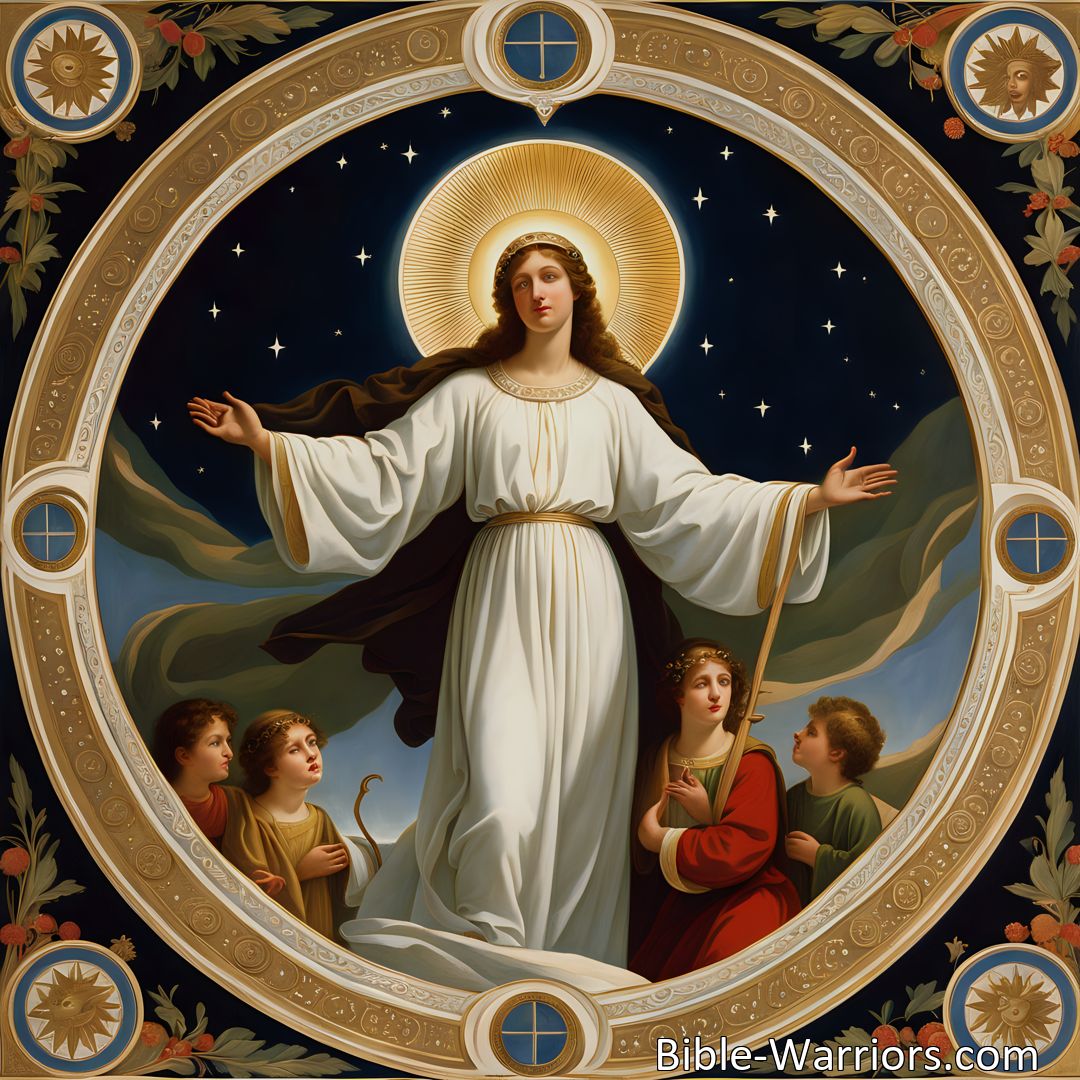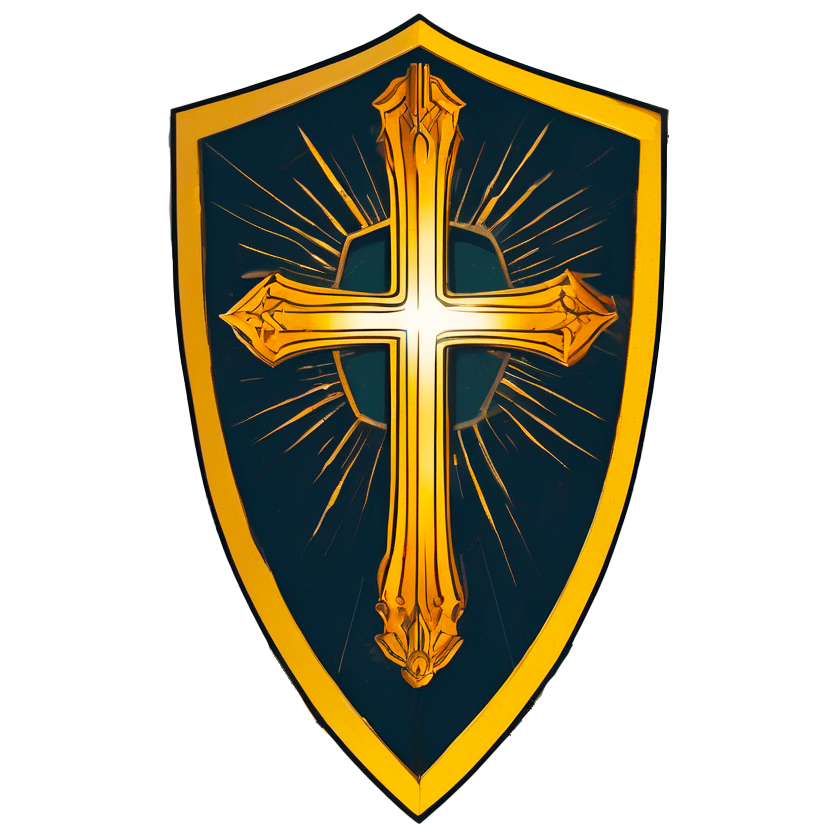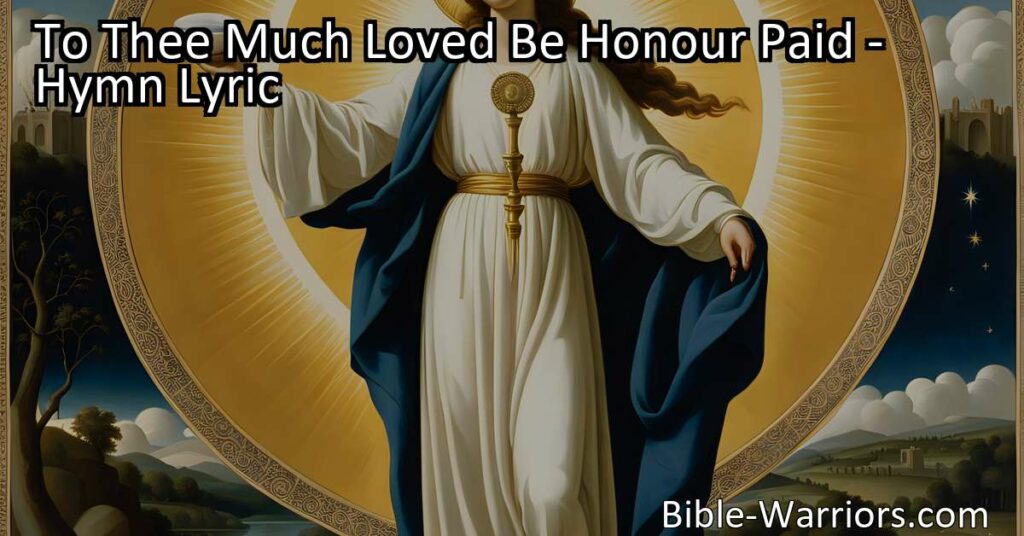To Thee Much Loved Be Honour Paid – Hymn Lyric
In this hymn, we pay honor to a beloved figure – a glorious Child of Hebrew descent. The Child’s triumph over the serpent’s deceit in paradise brought relief and freedom to humanity. We acknowledge their greatness and offer our utmost respect and admiration, saying, “To Thee, much loved, be honor paid!”
Table of Contents
To Thee Much Loved Be Honour Paid – Hymn Lyric
To Thee, much loved, be honour paid,
O glorious Child of Hebrew maid!
To Thee I raise the hymn anew,
Who didst the serpent’s wiles subdue,
And drive afar the infernal foe
That filled e’en Paradise with woe:
For, subtle with forbidden fruit,
Of woeful knowledge nurse and root,
Our primal founder he o’ercame,
And smote the world with death and shame.
All-glorious Thou with many a crown!
Thou didst to wretched earth come down,
To dwell with man by death assailed,
Thyself in mortal body veiled;
And Thou dark Tartarus didst tread,
Midst countless nations of the dead,
Then Hades, ancient-born, amazed,
Did shudder as on Thee he gazed;
And the all-devouring savage hound
The fabled Cerberus, Janitor Orci.
Backward recoiled with frightened bound.
But lo! to holy souls, oppressed
With direful woes, Thou gavest rest,
That they in chorus led by Thee,
To praise the Father might be free.
And from below when Thou didst rise,
The demon-hosts beneath the skies,
Unnumbered, quaked, O mighty King,
To hear the judgment Thou shouldst bring.
Then did the stars, immortal band,
Gazing at Thee, astonished stand.
But Ether laughed, the father he–
The father wise–of harmony;
And mingled from his seven-toned lyre
Bright notes of music’s holy fire,
Raising to Lord of earth and sky,
The song of victory on high.
And Lucifer, the guide of day,
With smiling countenance was gay;
And golden Hesperus afar
Shot beams, the Cythereïan star.
And shepherdess of right, the Moon
Filled her bright crescent with festoon,
And flowering wreath of liquid fire,
And led her peers in joyous choir.
And through the trackless paths of air
Titan spread out his flaming hair:
For God’s own Son, the master Mind
Which did all things create and bind
In mutual law, full well he knew,
From whom his primal fire he drew.
But Thou, as plying heavenly oar,
Or wing of bird, didst upward soar
With holy feet; and o’er the skies
And dark-blue-vaulted heaven didst rise,
Up-mounting to the spheres of light,
The realms of Mind for ever bright.
There goodness from the Fountain-head
In bliss through silent heaven is spread;
There nor deep-flowing restless Time
Drags earthborn children through the slime
Of coarser matter, nor hard fates
Roll turbid floods o’er mortal states;
But Age himself, the ancient-sprung,
Is ageless, old at once, and young;
And in the unfading courts of love
is steward to the blest above.
Meaning of To Thee Much Loved Be Honour Paid
To Thee Much Loved Be Honour Paid
When we gather to sing hymns, we often reflect upon the powerful messages and the heartfelt adoration they convey to us. “To Thee Much Loved Be Honour Paid” is a beautiful hymn that brings forth such emotions, weaving together themes of divine love, victory over evil, and the awe-inspiring nature of a spiritual journey.
The hymn opens with a tribute to the much-loved child of a Hebrew maid, celebrating this figure who, in Christian belief, is none other than Jesus Christ. Its a narration of his arrival into the world, his overcoming of the serpents deceit, and the hope he brought to humanity. The serpent here represents the temptation and sin that entered the world through Adam and Eve, according to the biblical story of the garden of Eden. With cunning wiles, the serpent led them to eat the forbidden fruit, which brought knowledge but also suffering and death.
In this hymn, Jesus is seen as the conqueror of this malevolent force, a hero who not only faced but also defeated the enemy. The reference to driving the “infernal foe” away speaks to Jesus’ triumph over the forces that had brought misery to mankind, as represented by the serpent.
As the hymn unfolds, it speaks of the glory and humility of this child who came to Earth, taking on a mortal form, living among humans, and facing death. This selfless act is a central pillar of Christian faith, illustrating the immense compassion and love that led Jesus to share in the human condition, even its darkest aspects.
The imagery of Jesus descending into Hades, the realm of the dead, confronts an ancient world filled with dread and shadows. The hymn describes a scene where even the most fearsome creatures, such as Cerberusthe multi-headed hound guarding the gates of the underworldare taken aback by the power and majesty they witness. Yet despite the darkness, there is a promise of liberation for the innocent souls who have long awaited redemption. The hymn highlights the hope that with Jesus’ intervention, these souls will be freed to join a celestial choir, singing praises to the Father.
But the journey does not end there, as the hymn describes the ascension of Jesus into the heavens, causing demons to tremble at the prospect of the judgment he is to bring. This paints a picture of a cosmic shifting of balance, where not only Earth but the entire universe acknowledges the significance of this moment.
As Jesus ascends, the celestial bodiesthe stars, the moon, the planetsare all personified, reacting to this divine event. The narrative brings in the character of Ether, the “father wise” of harmony, who represents the heavens filled with celebratory music. Even the mythological figures such as Lucifer, not the devil in this context but the morning star , and Hesperus, the evening star, join in the heavenly spectacle, brightening the sky with signals of joy and victory.
Titan, another word for the sun, spreads out his radiant warmth, recognizing the mastermind behind creation. The hymn speaks to the interconnectedness of all things, where even the sun acknowledges its source and the divine mind that binds the universe in harmonious law.
Finally, the song ascends with the holy figure to the realms beyond the physical, a place of eternal goodness, beauty, and peace. In this spiritual dimension, time and the physical limitations of our world do not bind one. There, all things are ageless, existing in a state of perfection and everlasting lovea stark contrast to the imperfect and transient nature of earthly life.
“To Thee Much Loved Be Honour Paid” is a hymn filled with rich imagery, echoing the triumph of good over evil, the mercy and sacrifice for the sake of humanity, and the ultimate journey from the depths of despair to the heights of heavenly bliss. It inspires those who sing and listen to reflect on these profound themes, stirring feelings of reverence and gratitude for the wondrous narrative it depicts.
Whether in a church, at home, or within the quiet of our own hearts, when we give honour through hymns such as this, we are participating in an age-old tradition of praise and worship. We join a chorus that transcends time, reaching out towards the eternal and the sacred. And in doing so, we find moments of solace, illumination, and a deeper connection to the divine tapestry of existence.
I hope this hymn inspired image brings you hope and peace. Share it with someone who needs it today!



